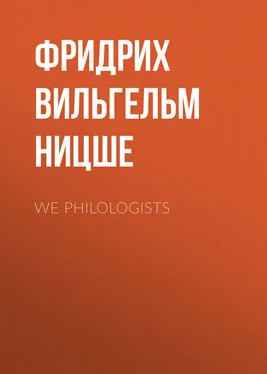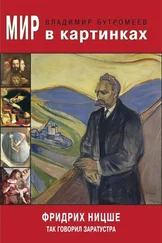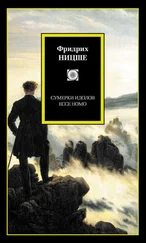Фридрих Ницше - We Philologists
Здесь есть возможность читать онлайн «Фридрих Ницше - We Philologists» — ознакомительный отрывок электронной книги совершенно бесплатно, а после прочтения отрывка купить полную версию. В некоторых случаях можно слушать аудио, скачать через торрент в формате fb2 и присутствует краткое содержание. Жанр: Философия, literature_19, foreign_antique, foreign_prose, на английском языке. Описание произведения, (предисловие) а так же отзывы посетителей доступны на портале библиотеки ЛибКат.
- Название:We Philologists
- Автор:
- Жанр:
- Год:неизвестен
- ISBN:нет данных
- Рейтинг книги:3 / 5. Голосов: 1
-
Избранное:Добавить в избранное
- Отзывы:
-
Ваша оценка:
- 60
- 1
- 2
- 3
- 4
- 5
We Philologists: краткое содержание, описание и аннотация
Предлагаем к чтению аннотацию, описание, краткое содержание или предисловие (зависит от того, что написал сам автор книги «We Philologists»). Если вы не нашли необходимую информацию о книге — напишите в комментариях, мы постараемся отыскать её.
We Philologists — читать онлайн ознакомительный отрывок
Ниже представлен текст книги, разбитый по страницам. Система сохранения места последней прочитанной страницы, позволяет с удобством читать онлайн бесплатно книгу «We Philologists», без необходимости каждый раз заново искать на чём Вы остановились. Поставьте закладку, и сможете в любой момент перейти на страницу, на которой закончили чтение.
Интервал:
Закладка:
As man assumes a sceptical and melancholy attitude towards his life's calling, so we must sceptically examine the highest life's calling of a nation: in order that we may understand what life is.
6
My words of consolation apply particularly to the single tyrannised individual out of a hundred: such exceptional ones should simply treat all the unenlightened majorities as their subordinates; and they should in the same way take advantage of the prejudice, which is still widespread, in favour of classical instruction – they need many helpers. But they must have a clear perception of what their actual goal is.
7
Philology as the science of antiquity does not, of course, endure for ever; its elements are not inexhaustible. What cannot be exhausted, however, is the ever-new adaptation of one's age to antiquity; the comparison of the two. If we make it our task to understand our own age better by means of antiquity, then our task will be an everlasting one. – This is the antinomy of philology: people have always endeavoured to understand antiquity by means of the present – and shall the present now be understood by means of antiquity? Better: people have explained antiquity to themselves out of their own experiences; and from the amount of antiquity thus acquired they have assessed the value of their experiences. Experience, therefore, is certainly an essential prerequisite for a philologist – that is, the philologist must first of all be a man; for then only can he be productive as a philologist. It follows from this that old men are well suited to be philologists if they were not such during that portion of their life which was richest in experiences.
It must be insisted, however, that it is only through a knowledge of the present that one can acquire an inclination for the study of classical antiquity. Where indeed should the impulse come from if not from this inclination? When we observe how few philologists there actually are, except those that have taken up philology as a means of livelihood, we can easily decide for ourselves what is the matter with this impulse for antiquity: it hardly exists at all, for there are no disinterested philologists.
Our task then is to secure for philology the universally educative results which it should bring about. The means: the limitation of the number of those engaged in the philological profession (doubtful whether young men should be made acquainted with philology at all). Criticism of the philologist. The value of antiquity: it sinks with you: how deeply you must have sunk, since its value is now so little!
8
It is a great advantage for the true philologist that a great deal of preliminary work has been done in his science, so that he may take possession of this inheritance if he is strong enough for it – I refer to the valuation of the entire Hellenic mode of thinking. So long as philologists worked simply at details, a misunderstanding of the Greeks was the consequence. The stages of this undervaluation are · the sophists of the second century, the philologist-poets of the Renaissance, and the philologist as the teacher of the higher classes of society (Goethe, Schiller).
Valuing is the most difficult of all.
In what respect is one most fitted for this valuing?
– Not, at all events, when one is trained for philology as one is now. It should be ascertained to what extent our present means make this last object impossible.
– Thus the philologist himself is not the aim of philology.
9
Most men show clearly enough that they do not regard themselves as individuals: their lives indicate this. The Christian command that everyone shall steadfastly keep his eyes fixed upon his salvation, and his alone, has as its counterpart the general life of mankind, where every man lives merely as a point among other points – living not only as the result of earlier generations, but living also only with an eye to the future. There are only three forms of existence in which a man remains an individual as a philosopher, as a Saviour, and as an artist. But just let us consider how a scientific man bungles his life: what has the teaching of Greek particles to do with the sense of life? – Thus we can also observe how innumerable men merely live, as it were, a preparation for a man, the philologist, for example, as a preparation for the philosopher, who in his turn knows how to utilise his ant-like work to pronounce some opinion upon the value of life. When such ant-like work is not carried out under any special direction the greater part of it is simply nonsense, and quite superfluous.
10
Besides the large number of unqualified philologists there is, on the other hand, a number of what may be called born philologists, who from some reason or other are prevented from becoming such. The greatest obstacle, however, which stands in the way of these born philologists is the bad representation of philology by the unqualified philologists.
Leopardi is the modern ideal of a philologist: The German philologists can do nothing. (As a proof of this Voss should be studied!)
11
Let it be considered how differently a science is propagated from the way in which any special talent in a family is transmitted. The bodily transmission of an individual science is something very rare. Do the sons of philologists easily become philologists? Dubito . Thus there is no such accumulation of philological capacity as there was, let us say, in Beethoven's family of musical capacity. Most philologists begin from the beginning, and even then they learn from books, and not through travels, &c. They get some training, of course.
12
Most men are obviously in the world accidentally; no necessity of a higher kind is seen in them. They work at this and that, their talents are average. How strange! The manner in which they live shows that they think very little of themselves: they merely esteem themselves in so far as they waste their energy on trifles (whether these be mean or frivolous desires, or the trashy concerns of their everyday calling). In the so-called life's calling, which everyone must choose, we may perceive a touching modesty on the part of mankind. They practically admit in choosing thus. "We are called upon to serve and to be of advantage to our equals – the same remark applies to our neighbour and to his neighbour, so everyone serves somebody else; no one is carrying out the duties of his calling for his own sake, but always for the sake of others and thus we are like geese which support one another by the one leaning against the other. When the aim of each one of us is centred in another, then we have all no object in existing; and this 'existing for others' is the most comical of comedies."
13
Vanity is the involuntary inclination to set one's self up for an individual while not really being one; that is to say, trying to appear independent when one is dependent. The case of wisdom is the exact contrary: it appears to be dependent while in reality it is independent.
14
The Hades of Homer – From what type of existence is it really copied? I think it is the description of the philologist: it is better to be a day-labourer than to have such an anæmic recollection of the past. — 1 1 No doubt a reminiscence of the "Odyssey," Bk. ix – Tr.
15
The attitude of the philologist towards antiquity is apologetic, or else dictated by the view that what our own age values can likewise be found in antiquity. The right attitude to take up, however, is the reverse one, viz., to start with an insight into our modern topsyturviness, and to look back from antiquity to it – and many things about antiquity which have hitherto displeased us will then be seen to have been most profound necessities.
Читать дальшеИнтервал:
Закладка:
Похожие книги на «We Philologists»
Представляем Вашему вниманию похожие книги на «We Philologists» списком для выбора. Мы отобрали схожую по названию и смыслу литературу в надежде предоставить читателям больше вариантов отыскать новые, интересные, ещё непрочитанные произведения.
Обсуждение, отзывы о книге «We Philologists» и просто собственные мнения читателей. Оставьте ваши комментарии, напишите, что Вы думаете о произведении, его смысле или главных героях. Укажите что конкретно понравилось, а что нет, и почему Вы так считаете.


![Фридрих Ницше - Песни Заратустры [сборник]](/books/28216/fridrih-nicshe-pesni-zaratustry-sbornik-thumb.webp)






